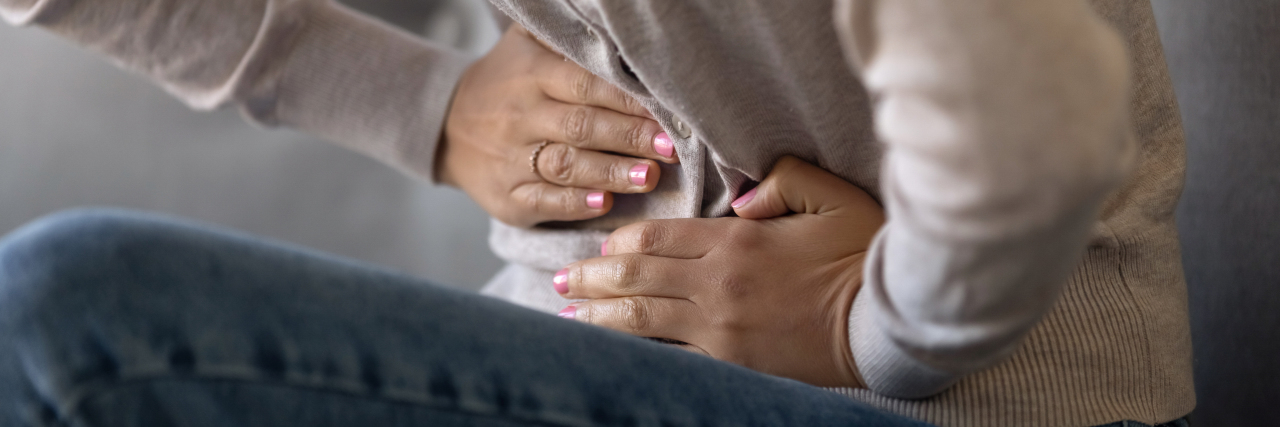What It's Like to Experience a GI Blockage as a Crohn’s Patient
As a person with Crohn’s disease, one of the things I absolutely dread is having a blockage in my small intestines or on the right side near the stoma. It’s extremely painful, and it makes me very tired due to the spasms in the lower right quadrant. The worst part is when nothing is coming out of my appliance for three hours or more and there is “contraction” pain that continues for a long time.
There are two types of blockages. A stricture or stenosis is a narrowing of the intestinal tract that can occur as the cycle of inflammation and scarring continues. If it becomes too narrow, it will eventually block the intestinal tract.
Adhesions are bands of tissue that form on the surface of the organs and make them stick together. Adhesions are frequently caused by abdominal surgery — 93% of people who have abdominal surgery develop adhesions. Most adhesions don’t cause any problems, but for some folks, they may cause the intestine to become fixed and stuck on the other organ. If a fixed intestinal adhesion becomes twisted, it can lead to an obstruction.
Trying to move in order to get to the phone and call my husband at work is extremely difficult. Just when I think the pain is gone, it comes back with a vengeance. All I feel like doing is sleeping on the bathroom floor until it passes, but I’ve learned what to do if there is a closed area in my digestive system and nothing can pass through it.
At the first sign of a blockage happening, I bring my overnight bag with me to the ER because I’m usually admitted. Once I get to the hospital, an IV line is started and blood is taken. Then I’m given fluids and pain medication. Next, they put the NG in (it’s often the most dreaded thing in the ER for those who have IBD). Sometimes they’ll leave the tube in to help decompress the air in the stomach, then I’m taken for a CT or MRI scan and returned to my area waiting for test results.
Intestinal blockages are very treatable, but if prompt treatment isn’t received, the parts that are blocked can start to die. That can lead to extremely serious complications, such as sepsis, a life-threatening complication.
Nobody likes the ER. If your symptoms worsen while waiting, have a family member or friend, notify the triage RN that you need assistance fast. By being cooperative with the medical team, Crohn’s patients can get the assistance they are looking for and much-needed relief.
Getty image by Fizkes.

